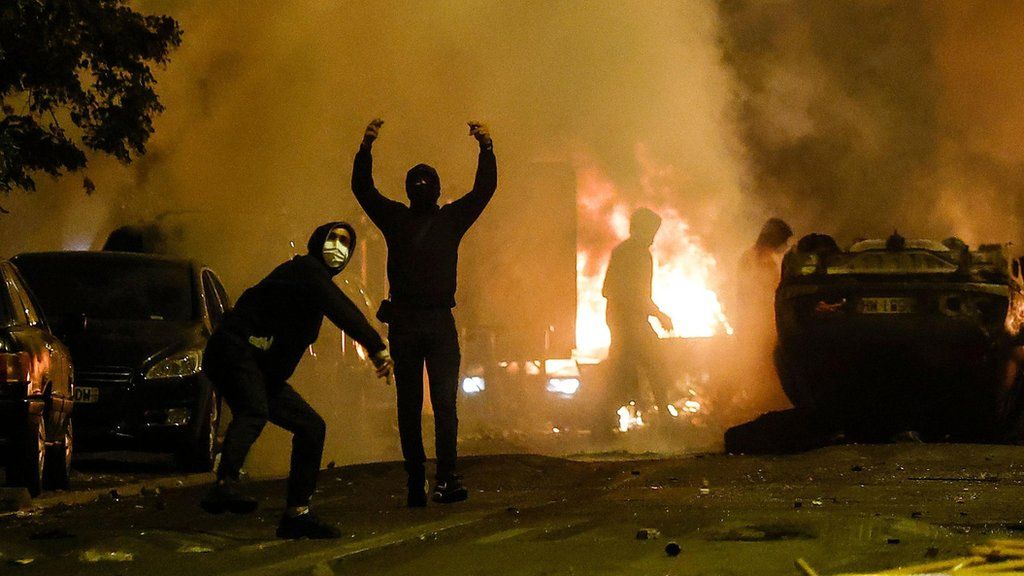The French interior minister has called on regions to ban the sale of fireworks, petrol cans, and flammable products in response to the ongoing crisis in France. The request comes as violence, looting, and rioting continue to escalate in Nanterre and other parts of the country.
Nanterre, a town located just outside of Paris, has become a focal point of the unrest. Journalists are advised to exercise caution when reporting in the area, as tensions are high and aggression towards the media is prevalent. The recent shooting of a 17-year-old boy of Algerian descent by the police has further fueled the anger and frustration of the local residents.
While some residents sympathize with the rioters, others believe that the violence is unjustified. Three middle-aged women, Lucille, Marie, and Jeanne, express their frustration with the chaos that has unfolded in their neighborhood. They argue that the rioting has nothing to do with the incident that sparked it and criticize the actions of the deceased teenager’s mother, who they believe is using the situation for political gain.
Public buildings, such as the local tax office, have been targeted by rioters, resulting in significant damage. Tax inspector Cyril, who lives in Nanterre, expresses his sadness and disbelief at the destruction, emphasizing that the tax office serves the community and attacking it is a disproportionate response.
Opinions among locals who participated in a memorial march for the deceased teenager vary. While some understand the anger and frustration that led to the riots, others express their hatred

How has the recent police shooting in Nanterre contributed to the ongoing unrest in the town and other parts of France?
The French interior minister has called for a ban on the sale of fireworks, petrol cans, and flammable products in response to the ongoing crisis in France. The violence, looting, and rioting in Nanterre and other parts of the country have prompted this request.
Nanterre, a town near Paris, has become a hotspot for the unrest. Journalists are warned to be cautious when reporting in the area due to the high tensions and aggression towards the media. The recent police shooting of a 17-year-old Algerian boy has only added to the anger and frustration of local residents.
While some residents sympathize with the rioters, others believe the violence is unwarranted. Three middle-aged women, Lucille, Marie, and Jeanne, express their frustration with the chaos in their neighborhood. They argue that the rioting is unrelated to the incident that sparked it and criticize the actions of the deceased teenager’s mother, who they believe is exploiting the situation for personal gain.
Rioters have targeted public buildings, including the local tax office, causing significant damage. Tax inspector Cyril, a resident of Nanterre, expresses sadness and disbelief at the destruction, highlighting that the tax office serves the community and attacking it is an excessive response.
Locals who participated in a memorial march for the deceased teenager have differing opinions. Some understand the anger and frustration that fueled the riots, while others express their hatred for the violence.


/cloudfront-us-east-1.images.arcpublishing.com/artear/LMY5PTMF6NBJTIUP5E52KSQEDA.png)
This article sheds light on the simmering unrest and deep-rooted divisions in Nanterre, offering valuable insights into the ongoing crisis that France is grappling with.